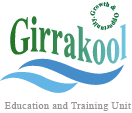27
OctoberThey Asked one hundred Specialists About Treatment For Addictions Thailand. One Reply Stood Out
Introduction
Alcohol detoxification is an important procedure within the trip of data recovery for individuals fighting liquor addiction. It is designed to eliminate toxins from the human body while handling detachment signs. This report explores the value of liquor cleansing, the symptoms experienced during detoxification, as well as the methods utilized assuring a safe and efficient detox Process addiction rehab Thailand.
Significance of Alcohol Detoxification
Liquor detox plays a crucial part in addiction recovery as a result of physical and mental dependence that develops in the long run. Persistent alcohol abuse causes changes in mind chemistry, leading to withdrawal signs when alcohol consumption is ceased. These signs may include tremors, anxiety, sleeplessness, sickness, as well as seizures. By undergoing detox, individuals can conquer the immediate physical ramifications of liquor withdrawal, setting the stage for further therapy and long-term data recovery.
Warning Signs Experienced During Alcohol Detoxification
During liquor detoxification, individuals can experience an array of withdrawal signs that can vary in severity. Minor signs can include trembling, sweating, and problems, while more serious situations can involve hallucinations, delirium, and seizures. The intensity and length of time among these symptoms rely on different factors, like the quantity and extent of alcoholic abuse, specific health issues, and previous cleansing experiences. It is important to note that these symptoms is deadly, highlighting the need of medical guidance during cleansing process.
Methods of Alcohol Detox
There are different ways and configurations designed for alcohol detoxification, which may be classified into outpatient, inpatient, and hospital-based detoxification services. Outpatient cleansing programs offer versatility, permitting people to get therapy while living in the home. However, they've been usually recommended for those with mild withdrawal signs and a good support system. Inpatient cleansing programs provide a controlled environment with 24/7 health care bills, making sure instant awareness of any complications that will occur. Hospital-based detoxification, having said that, would work for folks with extreme detachment symptoms, requiring a greater amount of health intervention.
During cleansing, health specialists may provide medicines to alleviate withdrawal symptoms and lower discomfort. Medications such as for example benzodiazepines, anticonvulsants, and anti-anxiety medications are generally familiar with manage withdrawal signs efficiently. Additionally, doctors monitor essential indications, offer counseling solutions, and implement an extensive treatment plan to handle the underlying reasons for alcohol addiction.
Conclusion
Alcohol cleansing is a vital action towards data recovery, aiding people in handling withdrawal symptoms and reducing the risk of complications. It offers a secure and supervised environment for people to eliminate toxins from their bodies and prepares them for additional therapy modalities. But is really important to recognize that detoxification alone is not a whole answer but instead the first stage of an extensive treatment plan. Following detox, people ought to be encouraged to engage in counseling, therapy, and organizations to handle the emotional and social aspects of alcoholic beverages addiction. By recognizing the importance of liquor detox and offering extensive care, medical professionals could possibly offer people suffering alcoholic beverages addiction a higher possibility at lasting recovery.

